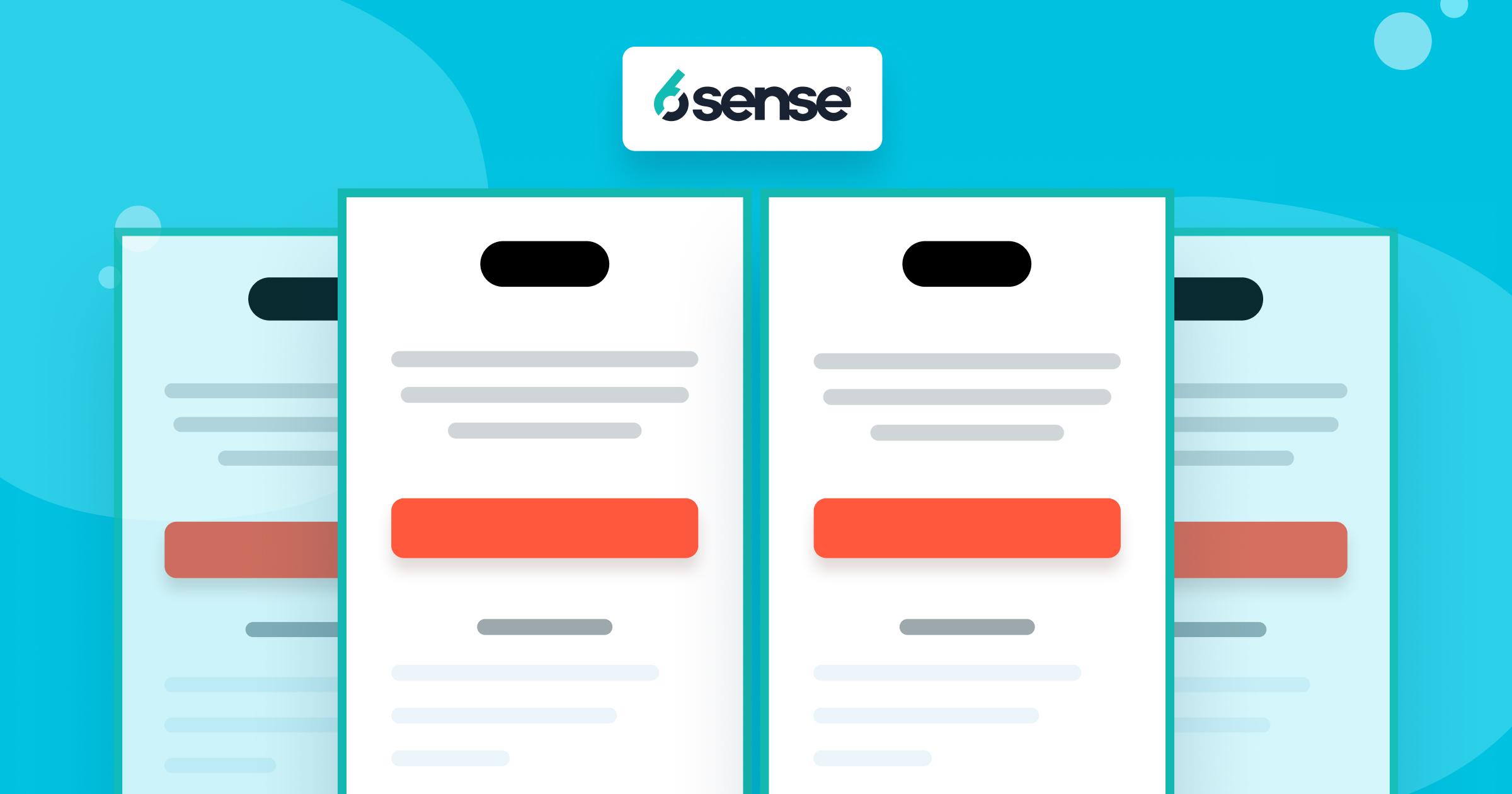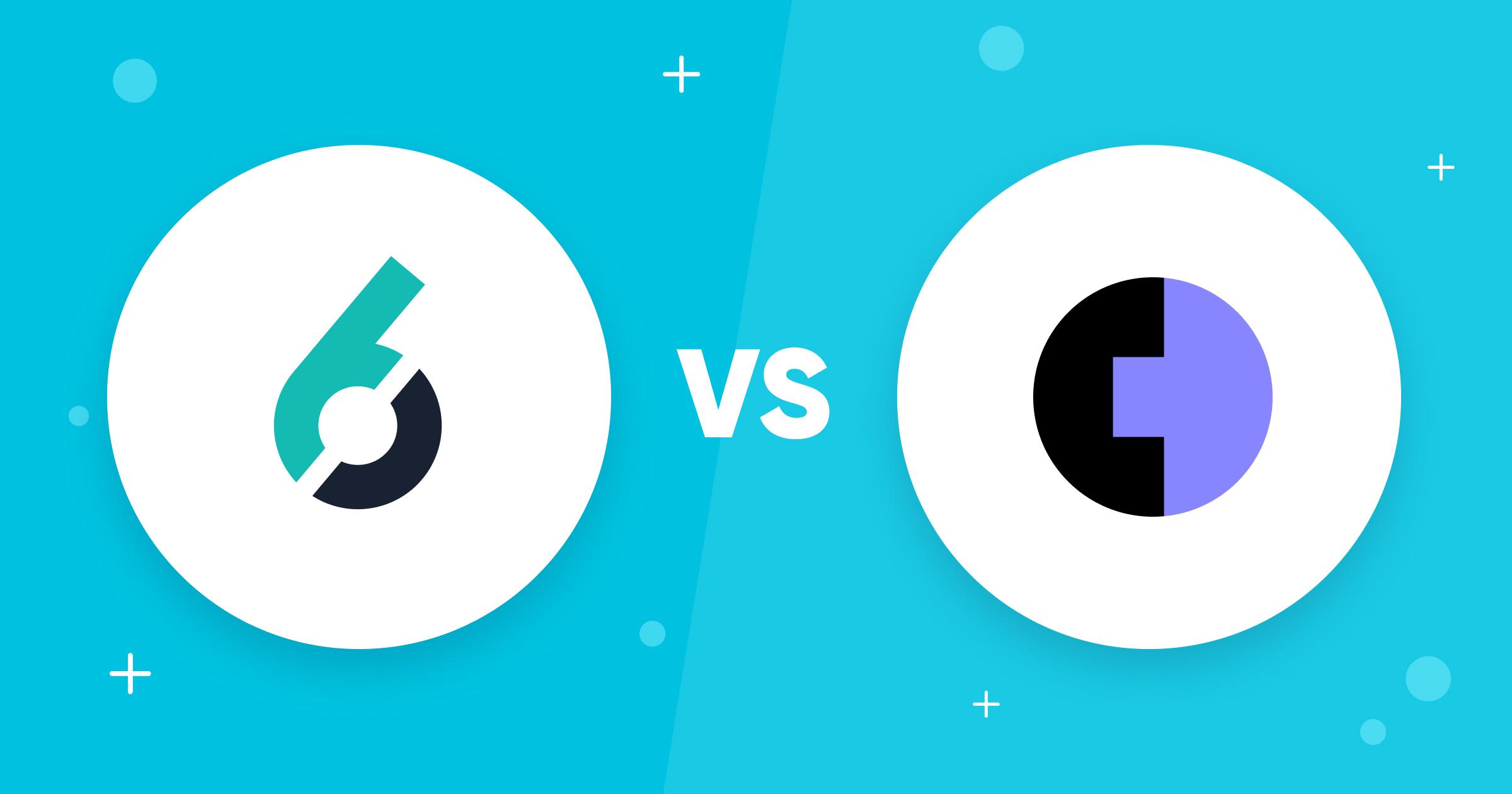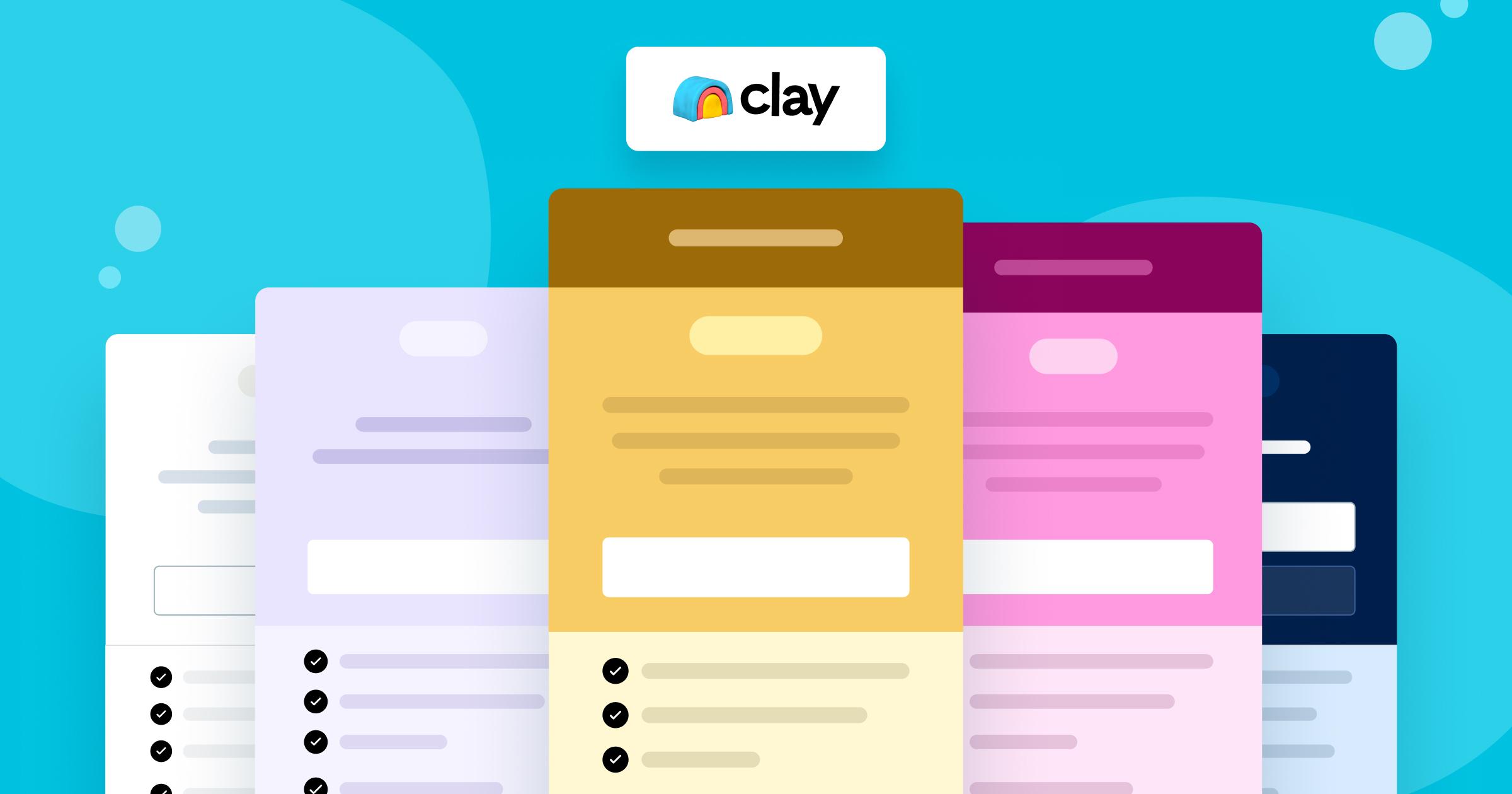B2B Lead generation is vital for your company’s success. However, generating B2B leads and converting them into paying customers is not always easy. You need to know how to generate many leads and where to generate qualified leads for your sales teams.
In this article, we’ll review over 30 proven ways to generate high-quality leads for your business. We’ll also show you how to keep your B2B lead generation strategies strong and reliable. That way, you’ll know how to generate B2B leads for every sales funnel stage.
Let’s get started.
What is B2B Lead Generation, and what are B2B leads?
B2B leads refer to potential customers. They’re usually considered leads once their profiles are identified as fitting within the definition of your ideal customer. They are people who need and can afford your solution.
B2B leads are typically separated into two types: marketing-qualified leads and sales-qualified leads:
Marketing-Qualified Leads
Marketing-qualified leads, or MQLs, are likely to become paying customers. They’ve usually shown the right behavioral queues, like visiting the pricing page repeatedly, filling out forms, going through your webinars and courses, or downloading one of your ebooks.
Although behaviors may change, MQLs are typically identified as “hot leads” who are informed of your product or service and are likely ready to take the next step.
Sales-Qualified Leads
Sales-qualified leads, or SQLs, are MQLs defined as ready for the next stage in the sales process by both the marketing and sales teams.
The MQL transitions to SQL by showing intent to purchase, like by requesting the attention of one of your salespeople, asking for a demo, or even indicating to one of your teammates that they’d like to make a purchase.
How to Generate B2B Leads through B2B Lead Generation Tools
Here’s how to use lead generation tools to generate B2B leads:
Use a professional lead generation tool to find and connect with business prospects
Professional lead generation tools allow you to browse a vast database of potential leads, find those that fit within your criteria, and download their information to pass on to your sales team. You might know them as B2B lead generation services as well.
These tools can be a great way of finding B2B leads quickly and adding them to your sales funnel. However, since these tools live or die according to their data, the best ones will likely guarantee their data so you can know you’re only paying for updated information.
UpLead
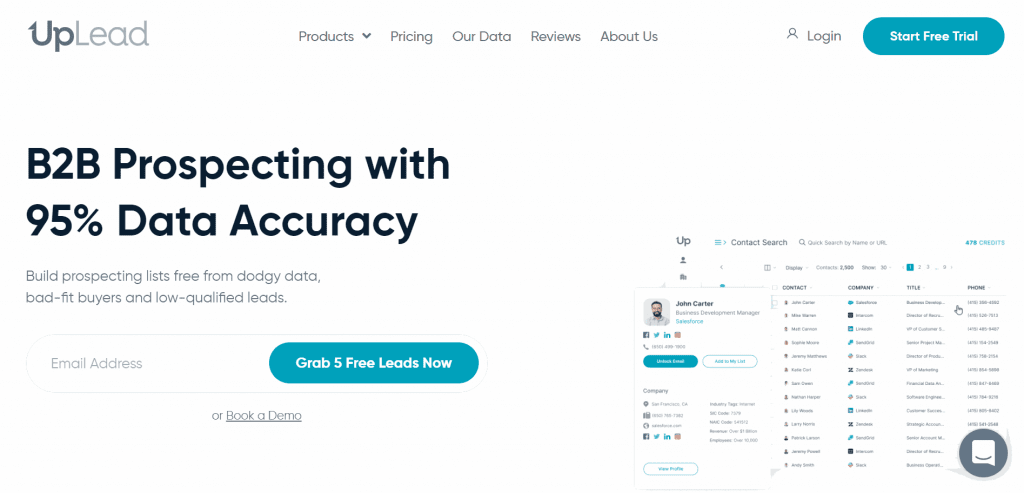
UpLead is a powerful lead generation tool that accesses over 160 million professional profiles. With Uplead, you can buy all the B2B leads you need in mere minutes, download them, and pass them on to your sales team to follow them up.
Browsing through leads is easy. Simply filter leads using your customer profile characteristics, like location, current technology, industry, etc. Once you’ve found the leads that are more likely to convert, you can download their data. UpLead will then validate each address in real-time, right before you download them, to ensure deliverability.
You can also use UpLead to enrich your lead lists, ensuring all your information is up to date. You can use UpLead’s 95% data accuracy guarantee and keep all your lead information fresh and updated.
Start with UpLead today.
Lead generation doesn’t have to be all that painful. With UpLead, you can easily connect with high-quality prospects and leads to grow your company.
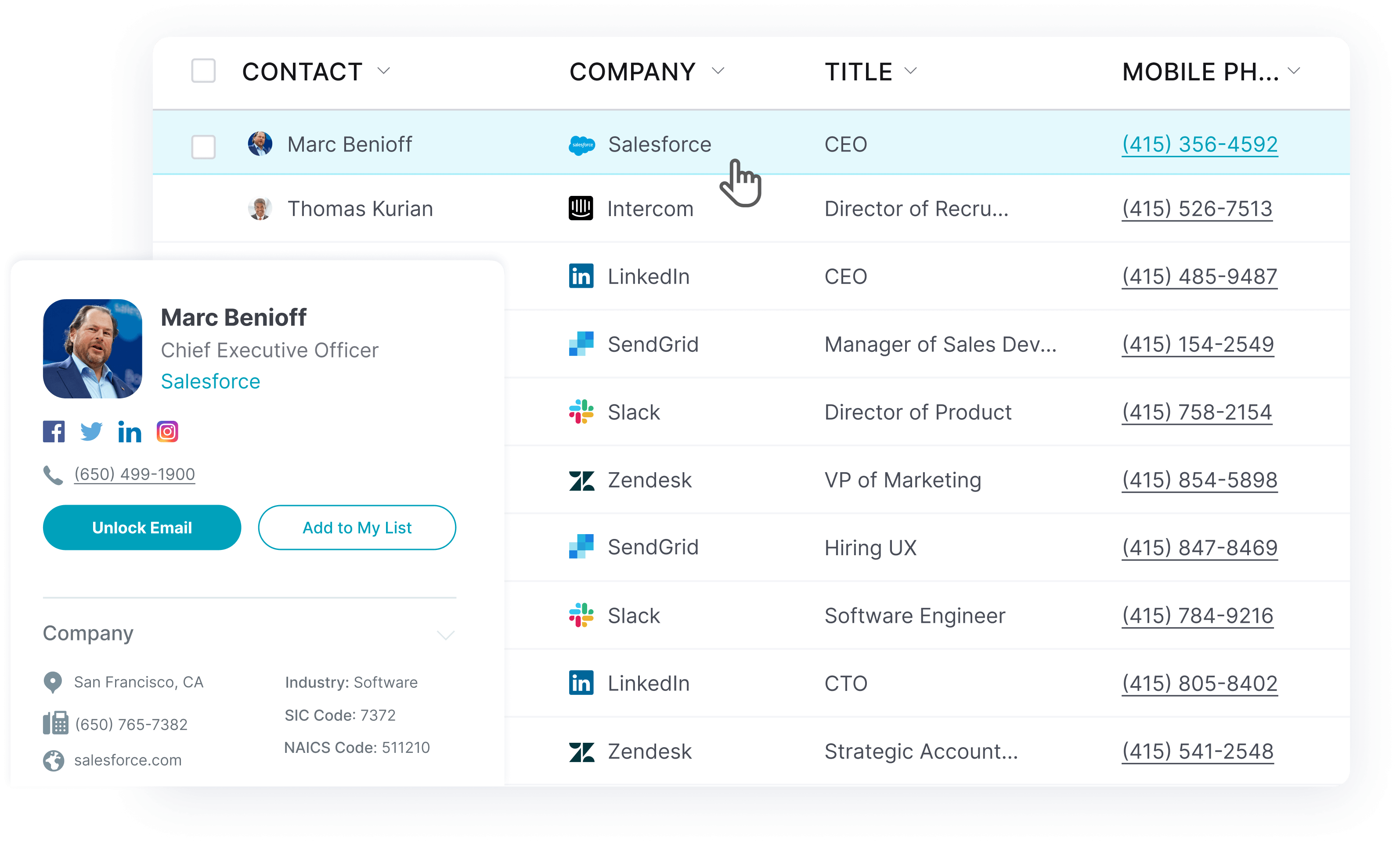
10 Ways to Generate B2B Leads through Content Creation
Here are ten ways to use content creation for B2B lead generation:
Create high-quality content that is relevant to your target audience
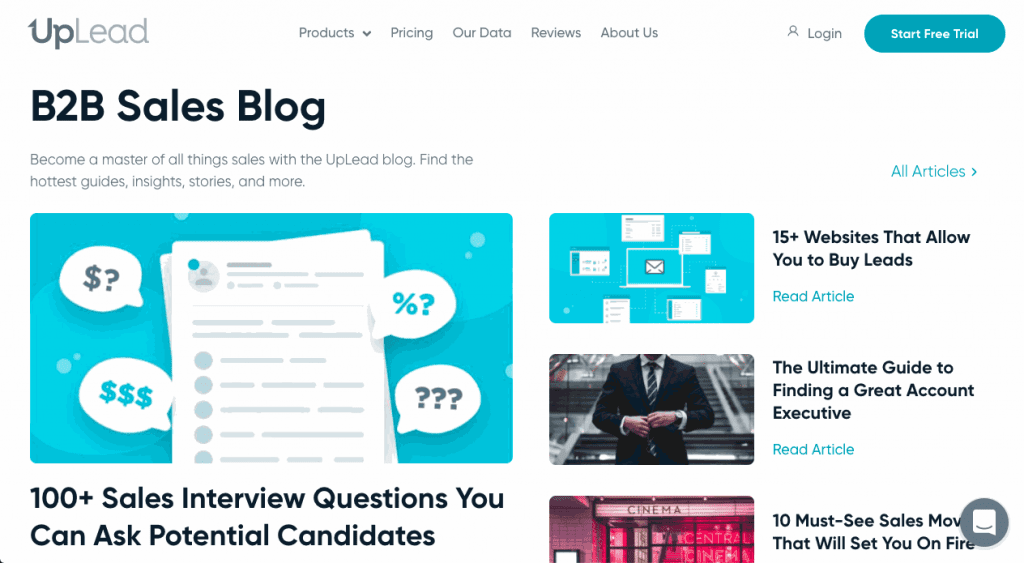
Often, the first step in a buyer’s journey is to do a Google search. You can capture leads right there with the right content. High-quality content educates the customer makes them aware of your brand, and makes you an authority on the subject.
By creating high-quality content, you can keep your audience informed and up to date. Once viewers are ready to make a purchase, you can easily convert those leads into paying customers. For optimal results, it’s important to scale content creation. Depending on your resources, you may do it in-house, with a content marketing agency, or a hybrid approach.
Prioritize the creation of evergreen content
Evergreen content is content that never goes out of date. While topical content may generate a lot of buzz immediately, evergreen content is always relevant and can continue generating leads years after the content was made.
However, you shouldn’t just create evergreen content and forget about it. Instead, look into how the content is converting. Treat it like you would treat paid ads by looking into potential ways to optimize them and make them better. Test it continuously and make sure the content remains polished and as effective as you can make it.
Use a strategic approach when gating your content
Gated content can quickly become one of the main lead-generation tools in your inbound marketing strategy. To make it effective, however, the content must be worth the admission price.
Remember, the content isn’t just an excuse to get someone’s contact information. It should be as valuable and relevant as you can make it if you’re hoping to make a sale afterward.
When creating content, make sure to do your research beforehand. Find knowledge gaps you can fulfill to educate potential leads. Look into which pain points your solution focuses on, and create content around it. Finally, make the content as high-quality as possible by developing the right visuals. Edit it until you have a valuable source of information, so your audience is happy enough to trade their contact information for it.
Create a landing page that is optimized for a CTA
Landing pages are one of the most basic and vital points in your B2B lead generation process. And since there’s no perfect landing page, there’s always room for improvement.
Depending on your offering, you can improve your landing page with:
- Social proof
- Irresistible headlines
- Live support
- Strong visuals
Finally, remember only to add one or two CTAs. Make sure to build your landing page around your CTA instead of adding it as an afterthought.
Create eBooks that are relevant to your potential business customers
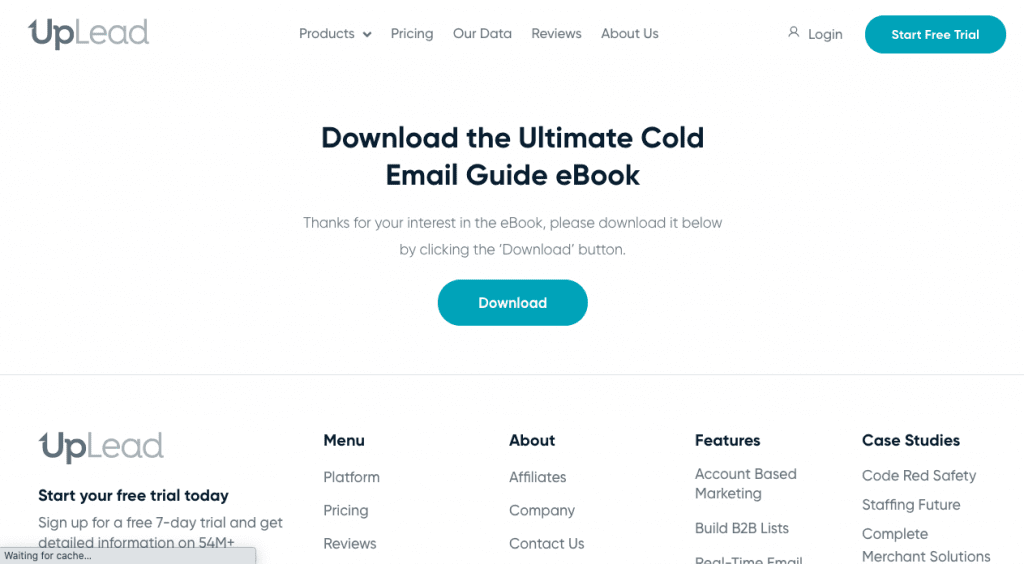
EBooks are popular because they work. Free eBooks, when done right, can be powerful lead magnets since they synthesize vital information and streamline it into a simple document that anyone can understand.
To create an effective eBook, make sure you’re making it as relevant and valuable as possible. Make it interactive through clickable links. Add videos, images, visuals, and other tools to make the reading experience memorable and enjoyable. This is increasingly easy nowadays when you can use tools such as Picsart to have AI art at your fingertips – the right tool can help you create visuals that fit your brand and overall message.
Host webinars on topics that appeal to your B2B audience
Webinars can also be a great tool for B2B lead generation as long as they offer real value to your audience.
If you’re developing webinars for lead generation for the first time, make sure to provide valuable information in the most polished way possible. Invest in enough technology to record your webinar, so the lack of quality doesn’t distract from your information.
Then, qualify leads from the webinar sign-up page by asking the right questions to gauge viewers’ interest in your solution and directing them to the right strategies afterward.
Host a niche podcast that is relevant to your business clients
Podcasts are another form of content creation on the rise. With the number of podcasts growing to almost a million subscribers and millions of episodes available, it’s undoubtedly a great way of keeping users informed and educated.
Since podcasts tend to be more intimate than articles or landing pages, you must ensure your podcast engages your users at that level. Use your company’s values and mission as a guide to infusing your podcast with personality. If you don’t have the capacity or knowledge to run it yourself, you can also consider hiring a podcast agency.
If you keep the content engaging and relevant, you’ll quickly find an audience that will happily listen to your podcast while they’re commuting or doing chores.
Follow Content SEO best practices to improve your presence on search engines
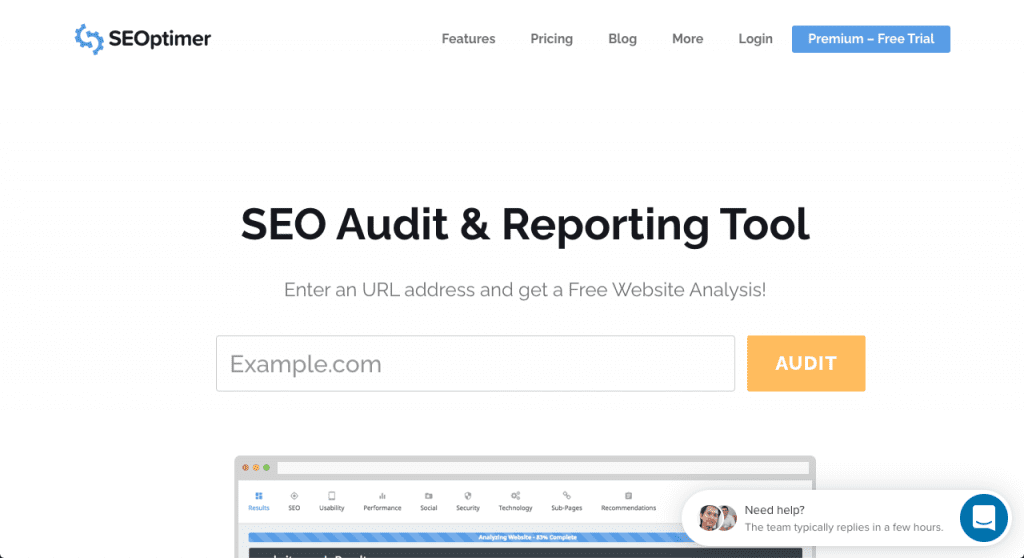
All the content in the world won’t get you anywhere if your audience doesn’t know how to find it. That’s why using SEO best practices can dramatically increase your visibility over time.
You can start by using free tools to crawl your website and fix issues as you find them. Then, you can start redirecting traffic to your website by creating hyper-relevant content optimized for long-tail keywords while ensuring your website is fully optimized for your main keyword.
Create unique shareable content
Everyone loves sharing a good infographic. They can make complex topics very easy to understand and quickly position your brand as an authority.
Research studies are also another source of traffic and a great source of backlinks too. However, they can be far more time-consuming, and not everyone has the resources to do a full-blown study as a part of their inbound marketing approach.
You can easily get started by looking into your data and searching for valuable nuggets of information like percentages and statistics from your audience. Then, write articles around that data to publish it. If you want to do more, have Google Alerts let you know when someone is quoting your content so you can request a link to your site. Make it a habit by creating an SOP based on all of these steps and integrate it into your daily work.
Create interactive online tools if applicable
Apps and online tools are great ways of capturing early leads and nurturing them into conversion.
Look into potential tools that would make your audience’s lives easier. From simple spreadsheets to automated data processing to full-blown apps, you can find a way to create a tool that your audience will find useful.
7 Ways to Generate Leads through Social Media Marketing
Here are seven ways to generate B2B leads through your social media channels:
Use LinkedIn to find and connect with highly targeted business customers
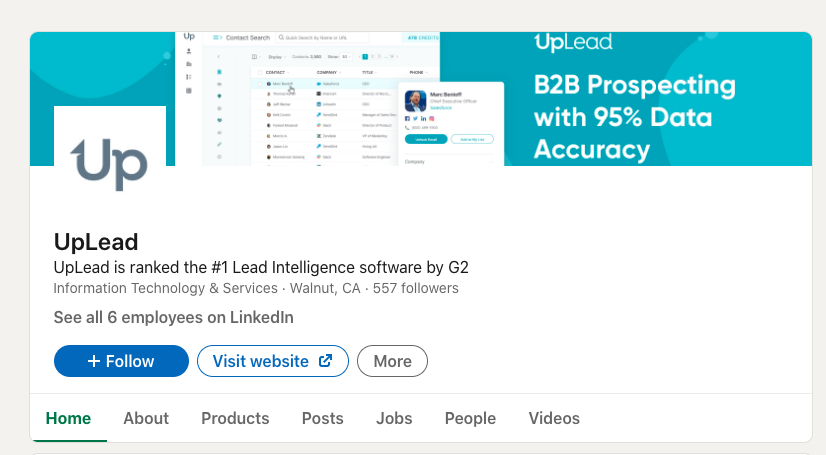
LinkedIn allows you to connect with other businesses and easily pitch your product to them. Since it’s a business-focused social media platform, it can be a great B2B lead generator.
Start by creating or updating your LinkedIn profile, ensuring it accurately portrays your business. Then, use LinkedIn to create content offering premium products or services. Since leads here are far more likely to be well-educated, you can use more technical jargon to attract the right B2B leads.
Use Facebook groups to build community and connect with B2B leads
Facebook Groups are perfect for establishing long-term B2B lead generation. After all, building and fostering a community around your solution takes time, but it’s a great way to create long-term engagement.
Promote your group first with your most engaged customers, moderating it as needed and then adding the rest of your customers slowly. Once it’s fully functional, you can start using the group as a lead magnet.
Use Twitter to communicate with and gathering feedback from potential customers
Unlike LinkedIn, Twitter is a great way to engage customers with small nuggets of information during their day-to-day life.
As with any content strategy, context is key. Keep in mind who your user is and make tweets as engaging as possible. Instead of trying to make a sale with every tweet, Twitter is a great place to show off your personality by posting photos of your employees and participating in national holidays.
Use YouTube to share a unique perspective through video content
YouTube is an underused tool for lead generation. Most companies don’t know how to leverage YouTube, a platform used mainly for entertainment and B2B lead generation. However, videos are an effective way to convey information, and YouTube is the second-largest search engine on the web. By learning how to embed YouTube video on their websites and social media, businesses can enhance their content strategy and reach a wider audience.
You can get started by simply transforming some of your content into engaging videos with a simple voiceover and animations to keep the viewer watching. Afterwards, you can enrich your content and embed your YouTube video within your blog post.
Use Instagram to engage with potential business customers through visual content
Whereas LinkedIn is a great social media platform for targeting your leads and producing business-based content, Instagram is a great tool for showing your company and your solutions in action, targeting users in the first stages of their customer journey.
You don’t need professional photographers. Simple, visually appealing photos can help. You can even choose to ditch the photos altogether and use tools like Canva to create simple posts with useful tips, quotes, and promos.
Use Pinterest if you are a niche business for which this purely visual platform is relevant
Everyone doesn’t use Pinterest. If your potential customer is active on Pinterest, you’ll likely have less competition.
Instead of worrying too much about your content, Pinterest is a great tool for posting user-generated content. This will cut down on your time spent creating content and help you create engagement since users are likely to share that your company selected their posts.
Use any other social media platforms that may be relevant to your target audience

Although most people think of Facebook and Twitter when they think of social media, other platforms can reach your potential customers more easily.
Tumblr, for example, is still popular with younger demographics, with over 300 million active users. Although not strictly a social media platform, Reddit can also be used for lead generation if the right subreddits are targeted.
And who could forget how Zach Snyder used Vero, a very small social media platform, to reach his audience and get enough buzz to fund his Justice League director’s cut?
If your user base uses a less-known social media platform, you’ll have a great chance of reaching them there.
5 Multichannel Marketing Ideas For B2B Lead Generation
Here are five ways to use multichannel marketing to generate B2B leads.
Run an online advertising campaign across different channels
Large companies run their most extensive advertising campaigns across most of their channels. When preparing for its Prime Day, Amazon uses social media, email marketing, landing pages, affiliate marketing, and much more to reach as many people as possible.
When you’re planning advertising campaigns with mass appeal, use all channels that make sense so you can easily reach your B2B leads.
Develop and execute an effective email marketing strategy
Email marketing is still one of the most cost-effective strategies. That’s why it may be easy to relegate email marketing as an extra channel to inform users of your blog posts and offers.
However, strong email marketing strategies can quickly become the basis of your B2B lead generation strategies.
Start by segmenting your leads. Then use data-driven decisions to develop strategies to interact with those leads. Encourage users to reply to your emails and test your campaigns as often as possible to increase their efficiency.
Partner with other websites and blogs that are relevant to your niche
Partnering with companies that share your target audience or other B2B lead generation companies can be a great way to expose your brand to users who otherwise wouldn’t have heard of you.
To find a good partner, look for companies that are not your direct competitors but those that your target audience still engages with. When offering to make a guest post on another company’s blog or website, always show them your best articles so the editors can see what to expect from your guest posts.
When writing as a guest, remember that the blog post will likely be the first time multiple users will hear about your company. Engage them at their level, avoiding technical jargon they may be unfamiliar with, and edit the article as much as possible so it opens the door to other guest posts later on.
Consider offering an affiliate program
Giving someone a commission in exchange for promoting your products or services is a great way of delegating B2B lead generation.
However, it’s not as simple as telling people you’ll give them a cut if they give you leads. Start by ensuring an adequate budget to start and sustain an affiliate program. Create strong incentives to get users to want to promote your brand. Make sure to set the terms as clearly and thoroughly as possible.
Don’t partner with just anyone. Instead, make sure your affiliates align with your brand and have access to your target audience.
Attend offline events to help promote your brand
Live events like expos and trade shows are a great way to generate leads locally. Since you can meet leads in person, you can quickly create deeper connections and qualify leads far more effectively.
Attend events that your target audience will be attending. Set aside a sufficient budget to build a high-quality booth where you can capture lead contact information. While you’re at the live event, make sure to network with customers and other companies to get new referrals. You can use event calendars to keep track of your events,
5 Ways to Generate B2B Leads through Marketing Automation
Here are five ways you can use marketing automation for B2B lead generation:
Use AI Chatbots to engage your business prospects
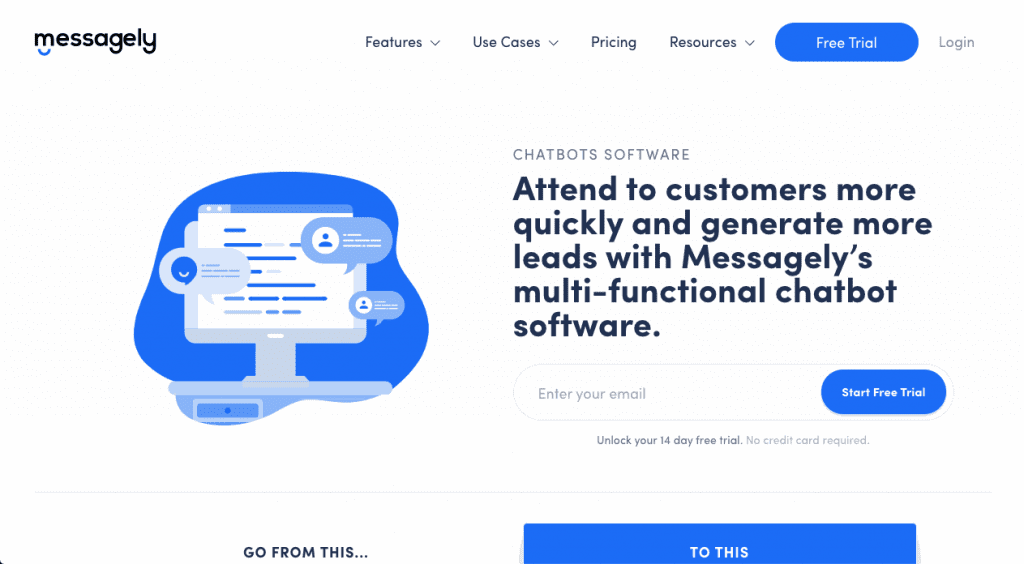
Unlike a live rep, chatbots work for you 24/7 and can handle as many prospects as you need. With tools like Messagely, you can set up a chatbot without any coding in minutes.
Use chatbots to answer common questions about your sales and marketing activities. You can use targeted messages to reach more qualified leads with offers while you nurture leads without involving any live agent.
When done right, your chatbots can quickly become your main marketing automation for B2B lead generation.
Run A/B tests on your landing pages and paid campaigns to optimize for your audience’s needs
Sometimes, you don’t have enough data to choose between two options. Instead of trusting your instinct, run A/B tests to keep optimizing your landing pages.
Make sure you know exactly what you’re going to test, and test with similar audiences to get reliable data.
Create retargeting rules to turn website visitors into leads
Retargeting is vital for lead generation efforts. It helps you reach users who you’ve already made the effort to engage with and gives you another chance to add them to your marketing funnel.
Make sure you’re collecting all the data you need to develop marketing automation techniques to retarget your leads. Use this data when leads are most likely to make a purchase. You can simply start with retargeting users on your website, using behavioral data to display relevant content to engage leads when they return, and offering email subscriptions and live assistance.
Automate social media sharing to expand content reach
Developing content for your social media visitors can take a lot of time. Instead of spending several valuable hours every other day filling your profiles with B2B lead generation posts and offers, automate content publishing.
This will allow you to cut down the time you need to follow through with your social media strategy without even paying a content marketing agency to publish the right posts at the right time.
Automate email marketing campaigns to turn subscribers into leads
Just like with social media, you can easily automate email marketing campaigns to work along with your lead-generation strategy.
Automating your email marketing outreach will allow you to set up multi-channel marketing campaigns for lead generation easily. Then you can test and supervise the marketing efforts instead of focusing on creating your next email.
3 Ways to do B2B Lead Generation through Competitor Research
Here are three simple ways you can leverage your competitors for B2B lead generation:
Use SEO software to research successful competitor websites
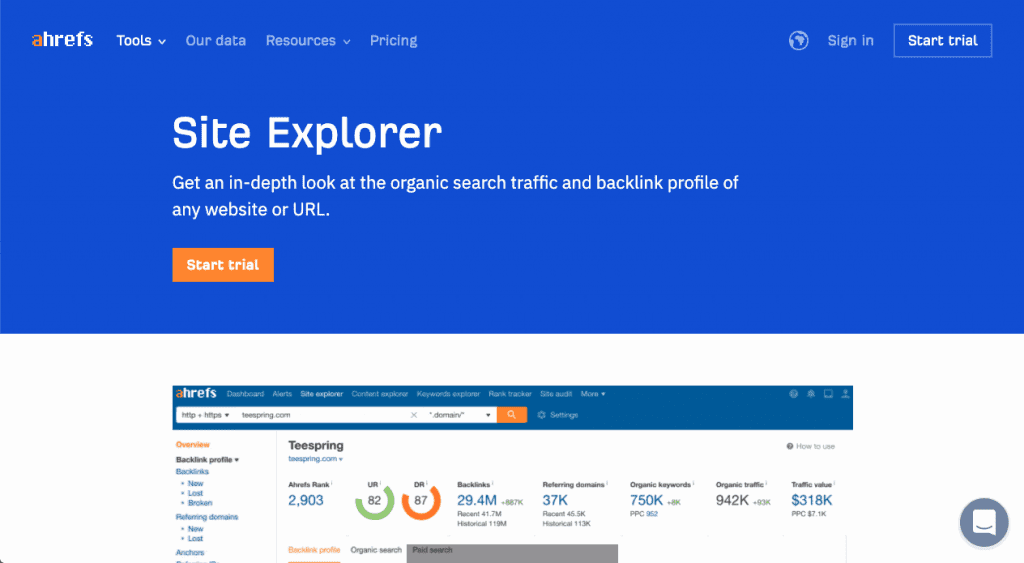
SEO research tools like SEMrush and Ahrefs let you use your competitor’s research to get better keywords you can target. This allows you to cut down on time and costs and quickly develop successful B2B lead generation strategies.
Start by focusing on your competitor’s most effective SEO strategies. Once you’ve identified potential keywords that can work for lead generation, run a small Google Ads campaign to test their effectiveness.
Then, you can focus on the most effective keywords and start testing ads to know which one you want to invest in promoting.
Identify content opportunities from competitor analysis
Competitor analysis is vital for B2B lead generation. After all, if it’s working for your competitors, it’ll likely work for you.
Start by selecting the right competitors. Ensure they’re targeting the same prospective clients you’re targeting instead of simply looking for companies that sell similar solutions. Then, use the right tools to monitor their efforts, identifying different strategies that may work for you and testing them first to see if they’re good enough to reach new audiences.
Identify partnership opportunities from competitor backlink research
Backlink research is a great way to see who your competitors are partnering with and decide if your company should also partner with them.
Tools like SEMrush help you identify competitors and research backlinks to see where most of them come from. You can also see the volume of traffic those backlinks produce, allowing you to identify the most effective potential partners quickly. Once you’ve identified them, you can focus on improving what your competitors are doing with their partners to get better results.
B2B Lead Generation: Conclusion
B2B lead generation doesn’t have to be hard. To generate valuable leads quickly, you can use lead generation tools like UpLead.
UpLead allows you to find more leads, place them in your marketing funnel, and segment them into the right group for each lead generation strategy.
Get started with UpLead today.
Lead generation doesn’t have to be all that painful. With UpLead, you can easily connect with high-quality prospects and leads to grow your company.


